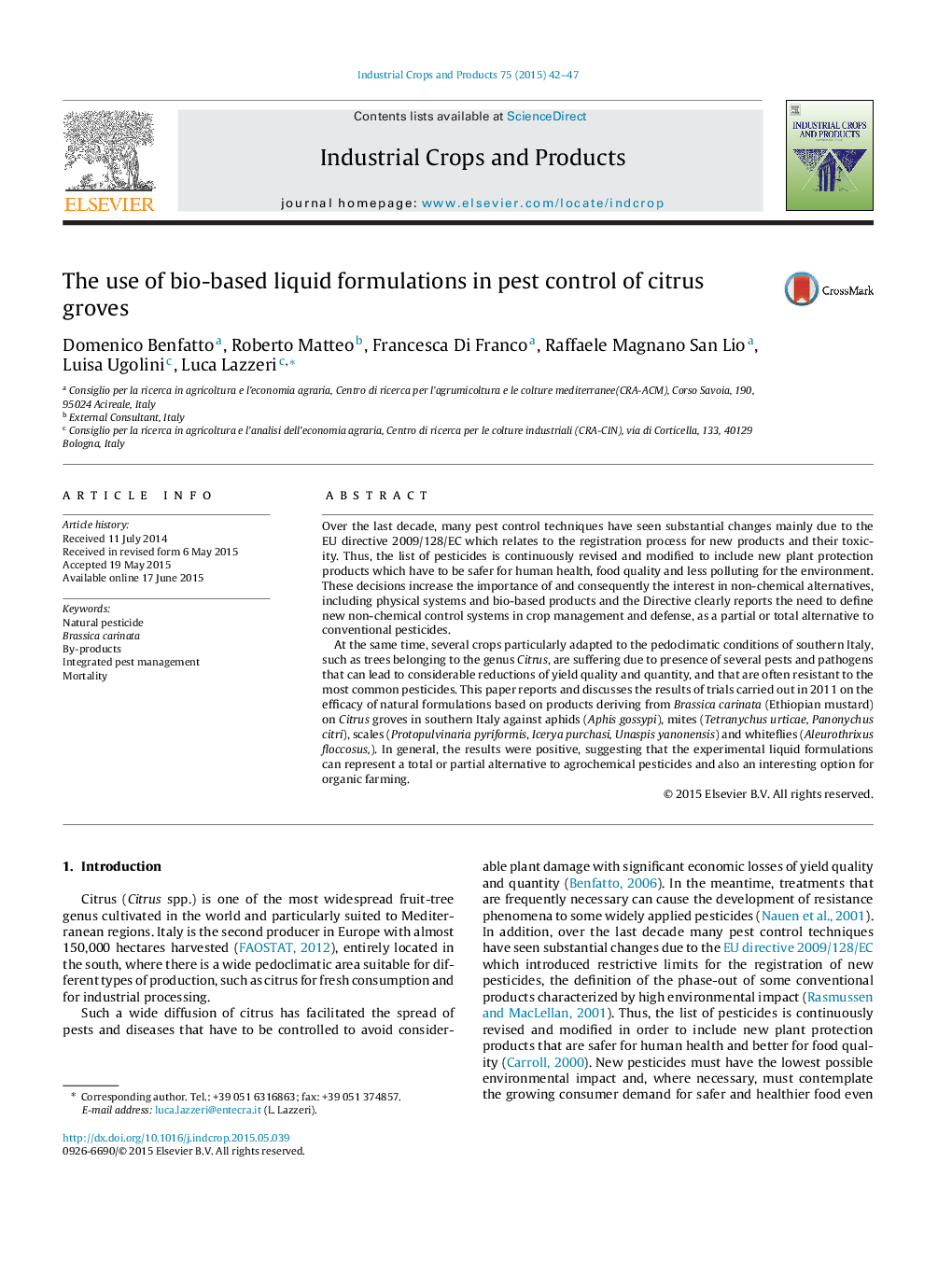| Article ID | Journal | Published Year | Pages | File Type |
|---|---|---|---|---|
| 4512803 | Industrial Crops and Products | 2015 | 6 Pages |
•Bio-based liquid formulations were tested against aphids, mites, scales and whiteflies.•Formulated B. carinata oil and defatted oilseed meal can control some pests of Citrus grove.•Repeated applications of the bio-based products did not determined phytotoxicity.•Natural enemies of the pests were not negatively affected by tested products.•Bio-based formulations are interesting alternatives to mineral oil and agrochemicals.
Over the last decade, many pest control techniques have seen substantial changes mainly due to the EU directive 2009/128/EC which relates to the registration process for new products and their toxicity. Thus, the list of pesticides is continuously revised and modified to include new plant protection products which have to be safer for human health, food quality and less polluting for the environment. These decisions increase the importance of and consequently the interest in non-chemical alternatives, including physical systems and bio-based products and the Directive clearly reports the need to define new non-chemical control systems in crop management and defense, as a partial or total alternative to conventional pesticides.At the same time, several crops particularly adapted to the pedoclimatic conditions of southern Italy, such as trees belonging to the genus Citrus, are suffering due to presence of several pests and pathogens that can lead to considerable reductions of yield quality and quantity, and that are often resistant to the most common pesticides. This paper reports and discusses the results of trials carried out in 2011 on the efficacy of natural formulations based on products deriving from Brassica carinata (Ethiopian mustard) on Citrus groves in southern Italy against aphids (Aphis gossypi), mites (Tetranychus urticae, Panonychus citri), scales (Protopulvinaria pyriformis, Icerya purchasi, Unaspis yanonensis) and whiteflies (Aleurothrixus floccosus,). In general, the results were positive, suggesting that the experimental liquid formulations can represent a total or partial alternative to agrochemical pesticides and also an interesting option for organic farming.
